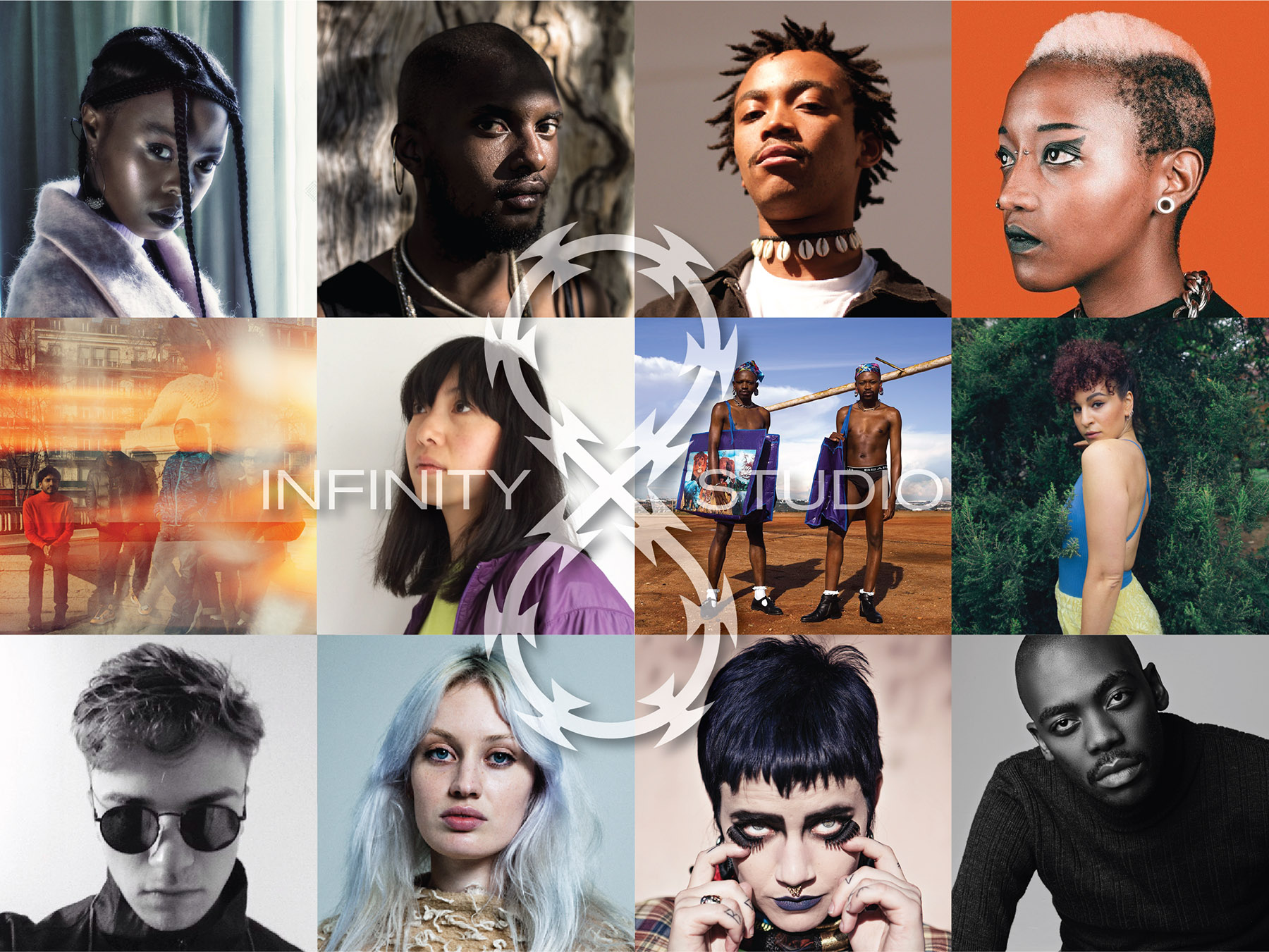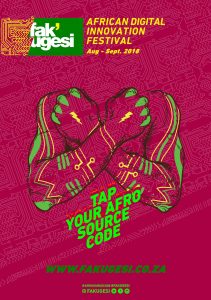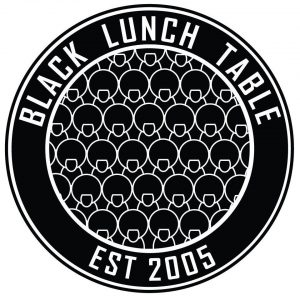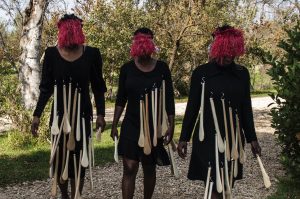Following on from the 5 day residency in Johannesburg at the end of April, Bubblegum Club along with the artists selected to be part of the Infinity Studio programme are in Hamburg for the final stage, their participation in the Live Art Festival #8: SUPERSPACES. Within this frame the work produced will see an expansion on their exploration of privatization, militarism and escapism in Johannesburg – the foundational concepts for the programme.
Creative Director of Bubblegum Club, Jamal Nxedlana had an interview with Caroline Spellenberg from Kampnagel to chat about our platform, CUSSÂ and the Infinity Studio programme taking place in the space.
On your website you describe yourself as a “cultural intelligence agency†– what do you mean by that?
It means that research is at the heart of our practice. Cultural insight or intelligence informs everything we do, from the type of content we publish to our curatorial projects and the visuals we produce.
Bubblegum Club is commercial image campaigns & promotion, publishing & journalistic writing, artistic and curatorial work. What is the core interest connecting all these practices?
Although we do connect these practices it was never our main intention. It was more about creating a space, building a network and developing an operating model for ourselves and other cultural practitioners. And in order to do so we felt that centering our practice around digital publishing made the most sense, especially in Johannesburg where there aren’t many opportunities, particularly for explorative practices.
You are also almost the same group of people who works under the name CUSS as a curators collective. I saw a programme you did at the KW in Berlin in the frame of the 9th Berlin Biennial. After this we started to talk and we invited you to curate a programme at Kampnagel for the Live Art Festival #8. How did you develop the concept for “Infinity Studio�
The idea has developed quite a lot from when we first started speaking. Initially we were interested in creating a space or studio for independent cultural producers. We imagined the space as a time capsule, organised and conceived in a way that would recreate the creative energy or mood that we felt and that was so stimulating for our practice between 2010 & 2012. In that moment we felt a sense of infinite possibilities, and that where the name Infinity Studio comes from.
Over time we identified a focus for the studio, which was to look at privatisation, militarisation and escapism in Johannesburg’s urban landscape. We organised a residency comprised of a 5 day immersive cultural tour. This allowed us to expose and immerse the invited artists to the spaces that we were looking at as the curatorial team. The programme we will present at Kampnagel in June will be based on the experiences from this residency.
Coming from the curatorial perspective of a theatre some things strike me about the way you work: For one, you invite a lot of quite different artists to participate with individual contributions, maybe extending the idea of a “group exhibition†into live art? How did you choose the line-up of 13 artists for the “Infinity Studio�
Yes, but from group exhibition to group work to live art. We looked for people with particular skill sets. For example, writers, vocalists, music producers, digital artists and fashion designers. People with skills that could be combined to produce components for a one group work. The other thing that was very important to us was the way people practice, for example, are they able to work in a group and practice across their area of interest or discipline?
Also, what strikes me is that you think a lot about the space, the framing and communication around the project. The ways of presenting the artists – which is part of the work as curators – becomes artistically itself. Can you describe your working methods for this?
Curation has always been an artistic practice for us and it’s no different with this project. Our role has been to create the platform and quite literally the stage on which the work is set and will play out.
The title of the Live Art Festival this year is SUPERSPACES and is presenting artistic and curatorial ways of creating specific set ups of space, art experiences and ‘users’. Can you connect the “Infinity Studio†to this?
I think it connects to this in the way we are approaching the relationship between the audience and the performers, as well as the relationship between the audiences space and the performers space (the stage). We will use curation to reorientate these relationships.
As content you choose to present insights into the urban cosmos of Johannesburg: your key words for this are “privatization, militarization & escapismâ€. Can you give us a little background on this?
It was really when we started thinking about the residency and what our plans were for it. We were thinking about the artists and the aspects of their work that we were interested in and how we could use the residency to focus in on those specific areas of their practices. As we identified spaces and mapped out activities for the residency or cultural tour, we started noticing themes and tropes which we distilled to “privatization, militarization & escapismâ€.
Your background is in visual arts and, I think, this is the first time you work in the context of a theatre institution, right? What differences between the two systems do you notice?
Yes it is. I haven’t noticed too much difference, especially because we are approaching this as we normally would. The only difference is the framework within which we had to work, that being the theater and the theater production. We had to slightly alter our thinking when it came to how we think about audience and how we programme the shows.
The Infinity Studio performances will be taking place from the 7th – 9th June. Check out the Facebook event for more details.
INFINITY STUDIO is produced by Kampnagel and Bubblegum Club, with the support of TURN – Fund of the Federal Cultural Foundation of Germany as well as the Goethe Institute.






